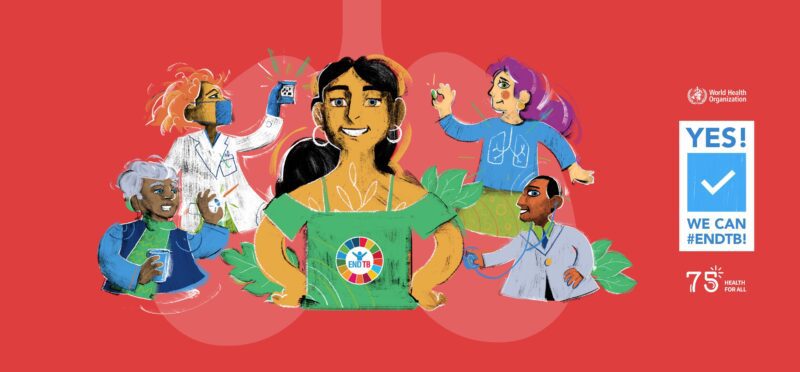Global Issues
YES! We Can End TB: This Is Again The Theme For The World TB Day 2024 -By Maclawrence Famuyiwa
Though, the concerted efforts to fight TB have saved around 75 million lives since 2000 but the COVID-19 pandemic alongside several conflicts around the world and poor socioeconomic conditions have derailed the progress made globally to control and eventually end TB.

The day, March 24th, was chosen as World TB Day every year so as to commemorate that day in 1882when Professor Robert Koch astonished the scientific community by announcing his discovery of the microbial cause of tuberculosis (TB), the TB bacillus Mycobacterium tuberculosis.
At that time of Koch’s pronouncement in Berlin, TB was raging through Europe and the Americas, decimating about one out of every seven people. It was Koch’s discovery that spearheaded discoveries about diagnosing and curing TB.
Each year a theme is chosen to commemorate this day. This year’s theme is the same as that of World TB Day 2023. This is because it is imperative to still further emphasize and convey a message of hope to those who still suffer from TB around the world.
The concept of commemorating the World TB day was to build public awareness that tuberculosis is still an epidemic in most parts of the world. It is also aimed at promoting public and political awareness of TB, which fortunately, is an easily preventable and treatable disease.
It is also logical to state that this year’s commemoration would be used to emphasize the much needed funding to globally encourage faster uptake of new WHO management recommendations for identifying, diagnosing and effectively manage TB infections and cases of clinical TB using new and updated WHO guidelines.
TB is still causing the deaths of nearly one-and-a-half million people every year, mostly in developing countries. This is despite the availability of effective TB treatment for over 65 years now. Drug-resistant TB due to antimicrobial-resistant disease is the leading cause of death worldwide today and it is increasingly becoming a global health security threat as hundreds of thousands of people are affected every year.
Though, the concerted efforts to fight TB have saved around 75 million lives since 2000 but the COVID-19 pandemic alongside several conflicts around the world and poor socioeconomic conditions have derailed the progress made globally to control and eventually end TB.
So, unfortunately too, the poorest and the disadvantaged people, who are the people most affected by TB, are the ones getting the short end of the stick as the deteriorating global economic situation, with increasing cost of living, is reducing national health budgets for national health programs. In addition, access to available WHO-recommended TB diagnostics and treatment regimens is still a major obstacle especially in the poorest countries of the world.
Though, TB principally infects the lungs but it can also infect other organs and it is spread when people with pulmonary TB, cough, sneeze or spit. It is then TB bacilli are carried in the air and respiratory droplets and spread from person to person(s). Only a few Mycobacteria needs to be inhaled before someone can be infected. Most TB infected persons would develop TB disease, some will even clear the infection. Those with immune response to TB bacteria only have 5 – 10%risk of developing TB disease in their lifetime. However, this risk is increased in people with compromised immune systems, for example, people living with HIV, diabetes, malnutrition etc.
In conclusion, in order for us to be able to say “Yes! We can End TB”, concerted political commitments are urgently needed globally to rejuvenate TB control towards ending TB. It is thus mandatory that governments of poorest countries of the world, most especially, must invest more into curbing TB and they must link their efforts doing this to WHO Sustainable Development Goals of reducing poverty, poor housing, and malnutrition.



















